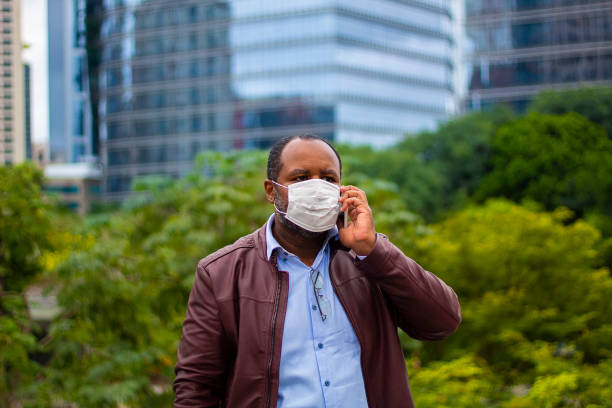Title: The Coronavirus World: Navigating Through Challenges and Adaptations
In the early months of 2020, the world found itself grappling with an unprecedented crisis – the outbreak of the novel coronavirus, SARS-CoV-2. This virus, responsible for the disease known as COVID-19, rapidly spread across the globe, triggering widespread panic, healthcare challenges, and economic disruptions. The impact of the coronavirus on the world has been profound, fundamentally altering the way we live, work, and interact. This essay delves into the multifaceted dimensions of the coronavirus world, exploring its effects on health, society, economy, and daily life.
Health and Healthcare Systems:
The coronavirus pandemic exposed the fragility of global healthcare systems. Hospitals and medical professionals faced overwhelming surges in patients, leading to shortages in essential supplies such as personal protective equipment (PPE), ventilators, and even healthcare workers. Nations scrambled to develop effective testing strategies, treatment protocols, and, eventually, vaccines. The race for vaccine development showcased the power of scientific collaboration and innovation. It also highlighted the challenges of equitable vaccine distribution, as richer nations obtained vaccines at a faster pace, leaving developing countries struggling to secure adequate supplies.
Societal Transformations:
Lockdowns, quarantines, and social distancing became the norm as societies sought to slow the virus's spread. Remote work and virtual communication surged, redefining the way people connected professionally and socially. Education systems transitioned to online platforms, revealing the digital divide and raising questions about the effectiveness of virtual learning. Mental health also emerged as a critical concern, as isolation, uncertainty, and anxiety took a toll on individuals worldwide.
Economic Disruptions:
The pandemic caused a global economic downturn, affecting industries from hospitality and tourism to manufacturing and retail. Lockdowns led to business closures and job losses, impacting livelihoods on an unprecedented scale. Governments implemented stimulus packages and financial support to counteract the economic fallout, resulting in soaring levels of public debt. The crisis also accelerated trends like e-commerce and automation, reshaping the future of work and commerce.
Global Cooperation and Challenges:
The coronavirus highlighted the importance of global cooperation in addressing crises that transcend borders. However, it also exposed the fragility of international relationships. Disagreements over the origins of the virus and the role of international organizations strained diplomatic ties. The pandemic further underscored the necessity of robust healthcare infrastructure and preparedness for future pandemics.
Vaccine Diplomacy and Inequity:
As vaccines became available, the world witnessed the emergence of "vaccine diplomacy." Countries that developed and manufactured vaccines gained influence by supplying doses to other nations. Yet, vaccine distribution remained uneven, with wealthier nations obtaining more doses than they needed while poorer countries struggled to secure supplies. This imbalance ignited debates about global solidarity, ethics, and the need for a more equitable approach to health crises.
Environmental Impact and Reflections:
Amid lockdowns, reduced industrial activity led to temporary improvements in air quality and pollution levels. This unexpected consequence prompted discussions about sustainable practices and the long-term impact of human activities on the environment. As the world adapted to new ways of living and working, some pondered the lessons that could be learned about consumption patterns, travel habits, and urban planning to build a more resilient and environmentally conscious future.
Resilience and Innovation:
The pandemic showcased human resilience and adaptability. Healthcare workers demonstrated unwavering dedication, while communities mobilized to support vulnerable members. Innovations such as telemedicine, contactless delivery, and virtual events emerged, reshaping industries in real-time. Scientific collaboration and the rapid development of vaccines highlighted the potential of human ingenuity in overcoming challenges.
The Path Forward:
As the coronavirus world continues to evolve, questions about the future remain. How will societies balance the desire for normalcy with the lessons learned during the pandemic? Will remote work become a permanent fixture? What policies will nations adopt to ensure equitable healthcare access? The crisis has revealed both vulnerabilities and strengths, setting the stage for discussions on global health security, preparedness, and cooperation.
In conclusion, the coronavirus world has reshaped the way we live, interact, and perceive our global interdependence. From healthcare and society to the economy and environment, its impact has been profound and far-reaching. While challenges remain, the pandemic has also spurred innovation, collaboration, and reflections on the kind of world we wish to build post-crisis. As we move forward, it is essential to leverage the lessons learned and prioritize global cooperation to navigate the complexities of a post-pandemic world.
In the early months of 2020, the world found itself grappling with an unprecedented crisis – the outbreak of the novel coronavirus, SARS-CoV-2. This virus, responsible for the disease known as COVID-19, rapidly spread across the globe, triggering widespread panic, healthcare challenges, and economic disruptions. The impact of the coronavirus on the world has been profound, fundamentally altering the way we live, work, and interact. This essay delves into the multifaceted dimensions of the coronavirus world, exploring its effects on health, society, economy, and daily life.
Health and Healthcare Systems:
The coronavirus pandemic exposed the fragility of global healthcare systems. Hospitals and medical professionals faced overwhelming surges in patients, leading to shortages in essential supplies such as personal protective equipment (PPE), ventilators, and even healthcare workers. Nations scrambled to develop effective testing strategies, treatment protocols, and, eventually, vaccines. The race for vaccine development showcased the power of scientific collaboration and innovation. It also highlighted the challenges of equitable vaccine distribution, as richer nations obtained vaccines at a faster pace, leaving developing countries struggling to secure adequate supplies.
Societal Transformations:
Lockdowns, quarantines, and social distancing became the norm as societies sought to slow the virus's spread. Remote work and virtual communication surged, redefining the way people connected professionally and socially. Education systems transitioned to online platforms, revealing the digital divide and raising questions about the effectiveness of virtual learning. Mental health also emerged as a critical concern, as isolation, uncertainty, and anxiety took a toll on individuals worldwide.
Economic Disruptions:
The pandemic caused a global economic downturn, affecting industries from hospitality and tourism to manufacturing and retail. Lockdowns led to business closures and job losses, impacting livelihoods on an unprecedented scale. Governments implemented stimulus packages and financial support to counteract the economic fallout, resulting in soaring levels of public debt. The crisis also accelerated trends like e-commerce and automation, reshaping the future of work and commerce.
Global Cooperation and Challenges:
The coronavirus highlighted the importance of global cooperation in addressing crises that transcend borders. However, it also exposed the fragility of international relationships. Disagreements over the origins of the virus and the role of international organizations strained diplomatic ties. The pandemic further underscored the necessity of robust healthcare infrastructure and preparedness for future pandemics.
Vaccine Diplomacy and Inequity:
As vaccines became available, the world witnessed the emergence of "vaccine diplomacy." Countries that developed and manufactured vaccines gained influence by supplying doses to other nations. Yet, vaccine distribution remained uneven, with wealthier nations obtaining more doses than they needed while poorer countries struggled to secure supplies. This imbalance ignited debates about global solidarity, ethics, and the need for a more equitable approach to health crises.
Environmental Impact and Reflections:
Amid lockdowns, reduced industrial activity led to temporary improvements in air quality and pollution levels. This unexpected consequence prompted discussions about sustainable practices and the long-term impact of human activities on the environment. As the world adapted to new ways of living and working, some pondered the lessons that could be learned about consumption patterns, travel habits, and urban planning to build a more resilient and environmentally conscious future.
Resilience and Innovation:
The pandemic showcased human resilience and adaptability. Healthcare workers demonstrated unwavering dedication, while communities mobilized to support vulnerable members. Innovations such as telemedicine, contactless delivery, and virtual events emerged, reshaping industries in real-time. Scientific collaboration and the rapid development of vaccines highlighted the potential of human ingenuity in overcoming challenges.
The Path Forward:
As the coronavirus world continues to evolve, questions about the future remain. How will societies balance the desire for normalcy with the lessons learned during the pandemic? Will remote work become a permanent fixture? What policies will nations adopt to ensure equitable healthcare access? The crisis has revealed both vulnerabilities and strengths, setting the stage for discussions on global health security, preparedness, and cooperation.
In conclusion, the coronavirus world has reshaped the way we live, interact, and perceive our global interdependence. From healthcare and society to the economy and environment, its impact has been profound and far-reaching. While challenges remain, the pandemic has also spurred innovation, collaboration, and reflections on the kind of world we wish to build post-crisis. As we move forward, it is essential to leverage the lessons learned and prioritize global cooperation to navigate the complexities of a post-pandemic world.




